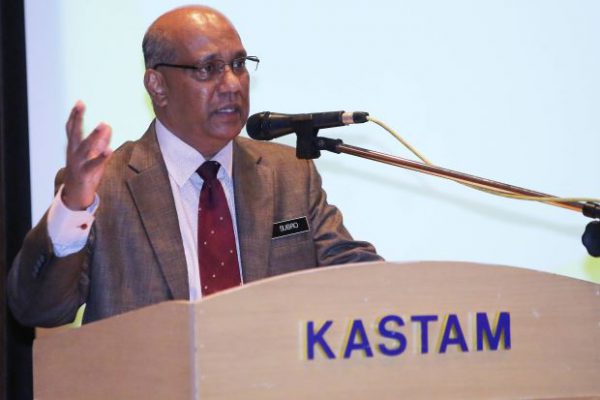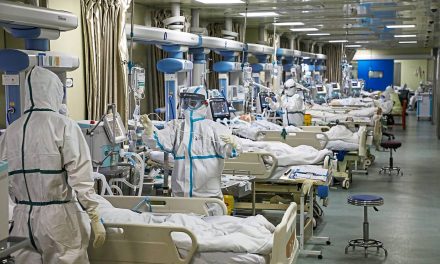Customs DG: Over 77,000 traders automatically registered for SST
More than 77,000 traders have registered for the Sales and Service Tax (SST) which will come into effect on Sept 1, says Customs director-general Datuk Seri T. Subromaniam. Their registration was done through automatic transfer from the Goods and Services Tax (GST) system that the SST will replace. Of the total, 32,577 were registered for the sales tax and 44,874 for the service tax. “This indicates that the compliance cost will drop because it is not necessary for most of the traders to register under the SST, only manufacturers of certain goods and providers of services,” he said. According to Subromaniam, a 31-point SST guideline would be uploaded on the Customs website for traders to refer to. Economists expect Malaysia’s inflation — as measured by the consumer price index (CPI) — to decelerate in July and remain subdued until the introduction of a new sales and services tax dubbed SST 2.0. (The Star Online)
SP Setia to launch projects worth RM4bil in 2H18
S P Setia Bhd plans to launch new projects with an estimated GDV of RM4.05 billion in the second half of the year (2H18), about two-thirds in Malaysia and a third overseas. The group is set to ramp up the new launches in the second half after unveiling over RM2 billion worth in the first half. The upcoming launches will focus more on the Klang Valley, with planned projects in Setia Alam, Setia Ecohill, Setia Ecohill 2, Setia Eco Templer, Setia Eco Glades, Setia Sky Seputeh (Tower B), Temasya Glenmarie, Setia Alamsari and Setia Alaman, all with a combined GDV of RM2.23 billion. In the northern region, the group will launch its maiden project, Setia Fontaines, on the Penang mainland, at the end of the year. On the international front, launches include Singapore’s Daintree Residence condominium – with a GDV of S$480 million (RM1.42 billion) – and Vietnam’s Eco Xuan township. (The Edge Markets)
RM400mil unsold Bumi properties in Kedah to be released
The Kedah government is planning to release RM400 million worth of Bumiputera property lots built before 2017 which have remained unsold for the past 10 years. State Industry and Investment, Local Government and Housing Committee chairman Tan Kok Yew said this involved about 1,000 houses, shophouses and industrial buildings. He said the proposed release would only be granted to freehold properties. Between 30% and 50% of such properties are usually reserved for Bumiputera buyers. “Once the release is granted, everyone, Bumiputeras or not, can buy these properties. However, a levy will be made payable, which will then be channelled to the ‘dream house trust fund’ to help the less fortunate own a house,” he said. (Free Malaysia Today)
Call to embrace low-carbon, development approaches
Embracing low-carbon development approaches for cities and townships is the key towards making Malaysia a climate-resilient green economy. GreenTech Malaysia CEO Dr Mohd Azman Zainul Abidin said various efforts are being made to lead the nation’s green technology landscape, through impactful projects under three flagships — Government Green Procurement, Electric Mobility and Sustainable Living. In 2011, the Energy, Technology, Science, Climate Change and Environment Ministry introduced the Low Carbon Cities Framework (LCCF) to guide local authorities and developers in making decisions on greener solutions. Many government buildings in Putrajaya have adopted green-building standards and are rated by the Green Building Index (GBI). The aspiration for the LCCF is for all 154 municipalities in Malaysia to adopt the framework by 2020, and cut carbon dioxide emissions by up to 45% by 2030. (NST Online)
Flexible work spaces help improve office glut
A growing demand for co-working spaces and flexible working solutions in the region, including in Malaysia, is helpful in counteracting the current oversupply of commercial offices, said global workplace provider Regus. Regus country head for Malaysia, Brunei and Indonesia Vijayakumar Tangarasan said property developers and companies such as Regus can work together to improve the market situation. “What landlords typically do is to sell a single floor, for example, which can be too expensive for companies to start with. Our strategy is to go in, take one or two floors, and bring in different customers to help drive traffic there,” he explained. Vijayakumar noted the empty offices are due to a weak economic situation, rising property prices and generally changing work preferences. Demand for flexible and co-working spaces in Asia has also greatly increased in the past couple of years. (The Edge Markets)





